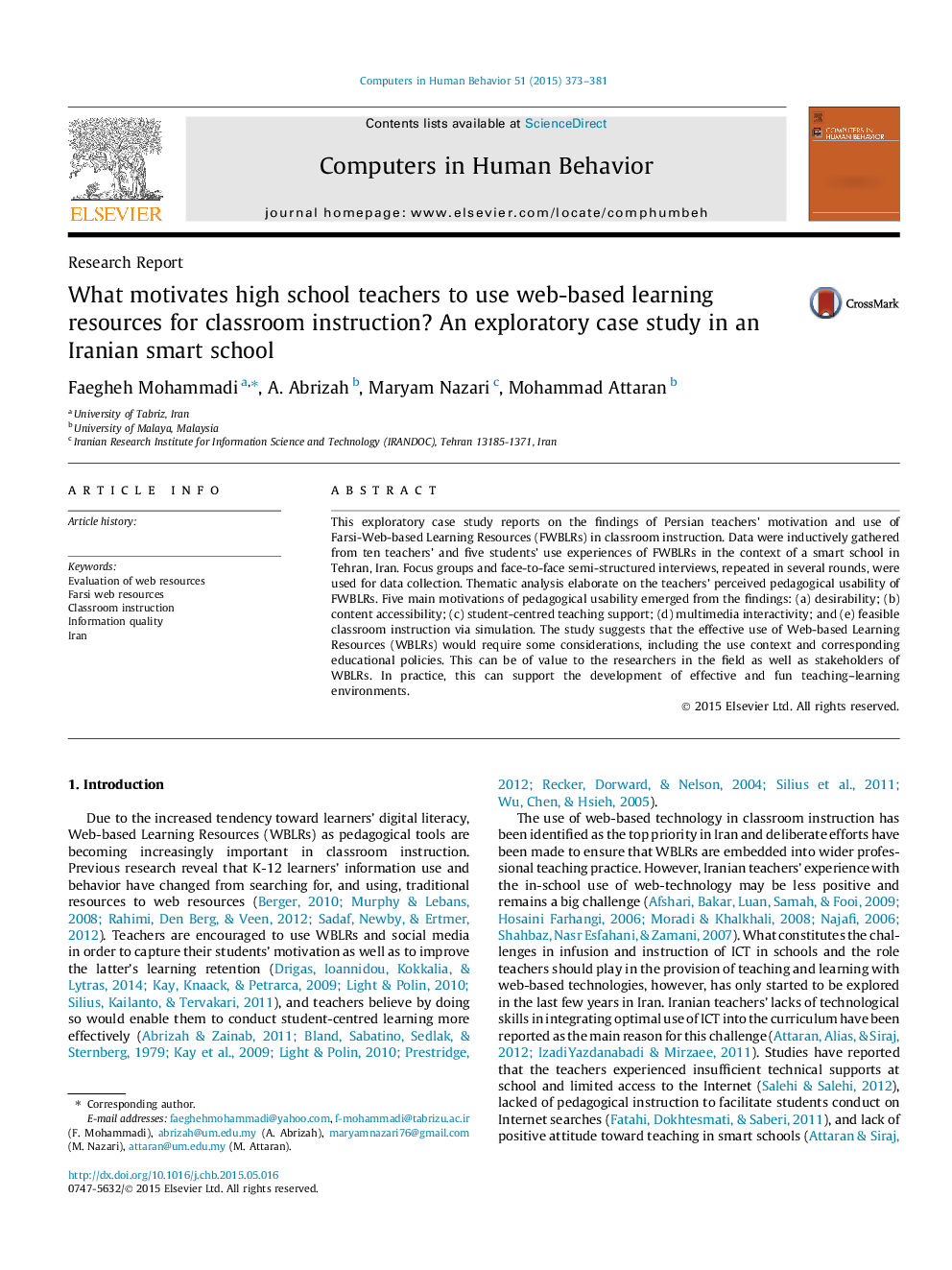| Article ID | Journal | Published Year | Pages | File Type |
|---|---|---|---|---|
| 10312573 | Computers in Human Behavior | 2015 | 9 Pages |
Abstract
This exploratory case study reports on the findings of Persian teachers' motivation and use of Farsi-Web-based Learning Resources (FWBLRs) in classroom instruction. Data were inductively gathered from ten teachers' and five students' use experiences of FWBLRs in the context of a smart school in Tehran, Iran. Focus groups and face-to-face semi-structured interviews, repeated in several rounds, were used for data collection. Thematic analysis elaborate on the teachers' perceived pedagogical usability of FWBLRs. Five main motivations of pedagogical usability emerged from the findings: (a) desirability; (b) content accessibility; (c) student-centred teaching support; (d) multimedia interactivity; and (e) feasible classroom instruction via simulation. The study suggests that the effective use of Web-based Learning Resources (WBLRs) would require some considerations, including the use context and corresponding educational policies. This can be of value to the researchers in the field as well as stakeholders of WBLRs. In practice, this can support the development of effective and fun teaching-learning environments.
Related Topics
Physical Sciences and Engineering
Computer Science
Computer Science Applications
Authors
Faegheh Mohammadi, A. Abrizah, Maryam Nazari, Mohammad Attaran,
